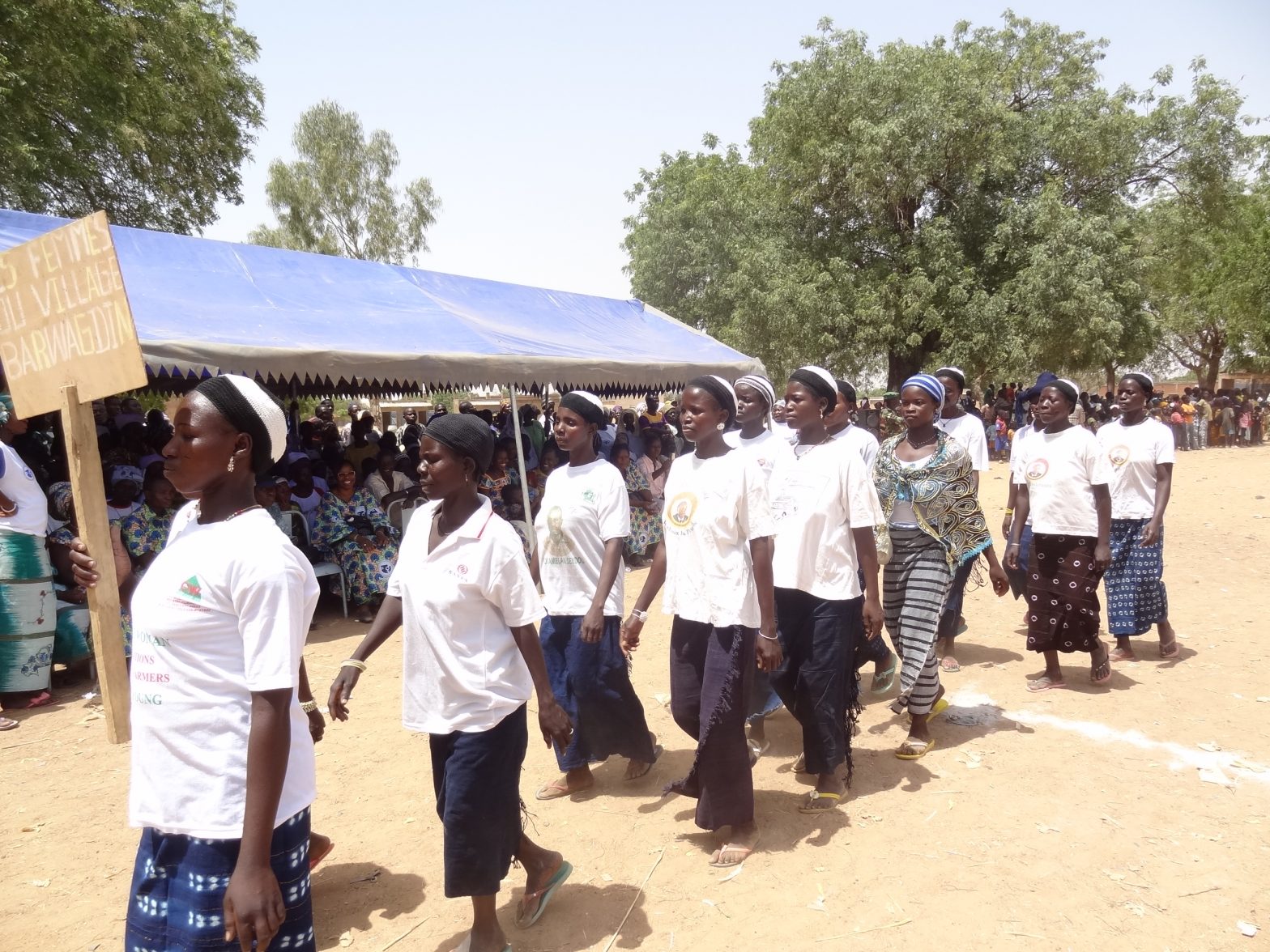Third in a series for 16 Days of Activism against Gender-based Violence. Photo: The Hunger Project – women’s march at the Bissiga epicenter.
There is a heartbreaking scene in Christy Turlington’s documentary No Woman, No Cry (2010) as a rural woman walks 12 miles to a birthing center, and is then turned away because she had not eaten and the clinic had no food for her.
Turlington served on the US Delegation to the UN Commission on the Status of Women in 2012 and is the founder of Every Mother Counts. She has produced numerous documentaries on the lack of health care that currently leads to the needless death of hundreds of thousands of women each year.
If this isn’t gender-based violence, what is?
Fortunately, more and more countries are passing legislation ensuring universal, free access to safe childbirth and even some of the world’s poorest nations such as Niger and Ethiopia have trained tens of thousands of “front line” community health workers to reduce this egregious violation of women’s rights.
A key ingredient of Universal Health Coverage is for women in communities to know their rights and how to enforce them. An excellent example is at the Bissiga epicenter (a cluster of rural villages) in Burkina Faso. In 2016, the national government adopted a policy of free health care for pregnant women and children under five. The epicenter committee, trained by The Hunger Project, mobilized community members to further ensure awareness of this new policy, and women quickly began accessing these services.
However, in 2017, health center employees informed them that their funds had run out, and that if they wanted care they would have to pay for it. Community leaders contacted local health extension agents to assert the rights of women and children in their villages, and threatened to pursue the issue at the national level.
Thanks to empowered citizens willing to hold government accountable, they succeeded in halting what was essentially a demand for bribes by health agents. Women and children today exercise their rights to free basic health services.
Health is a human right. Article 25 of the Universal Declaration of Human Rights states “Everyone has the right to a standard of living adequate for the health and well-being of himself and of his family, including food, clothing, housing and medical care…” Ensuring Universal Health Coverage, including universal access to sexual and reproductive health services, are targets of the 2030 Sustainable Development Goals.
Why tell this story today? Today marks two anniversaries that remind us that the quest for Universal Health Coverage is intimately tied to the quest to overcome patriarchy.
First: today Google’s home page “doodle” celebrates the birthday of Fe del Mundo, the first woman admitted to Harvard Medical School and founder of the first pediatric hospital in the Philippines.
Second: it was three years ago today that a mass shooting took place at a Planned Parenthood Health Center in Colorado Springs, killing three people and injuring nine. Planned Parenthood’s 700 health centers provide health care to 2.8 million Americans, mostly poor. Some 28 million Americans still lack health insurance in the wealthiest country on earth.
On this, the third of the 16 Days of Activism against Gender-based Violence, we all need the courage and determination of Fe del Mundo and the women of Burkina Faso to ensure that the right to health is guaranteed.


